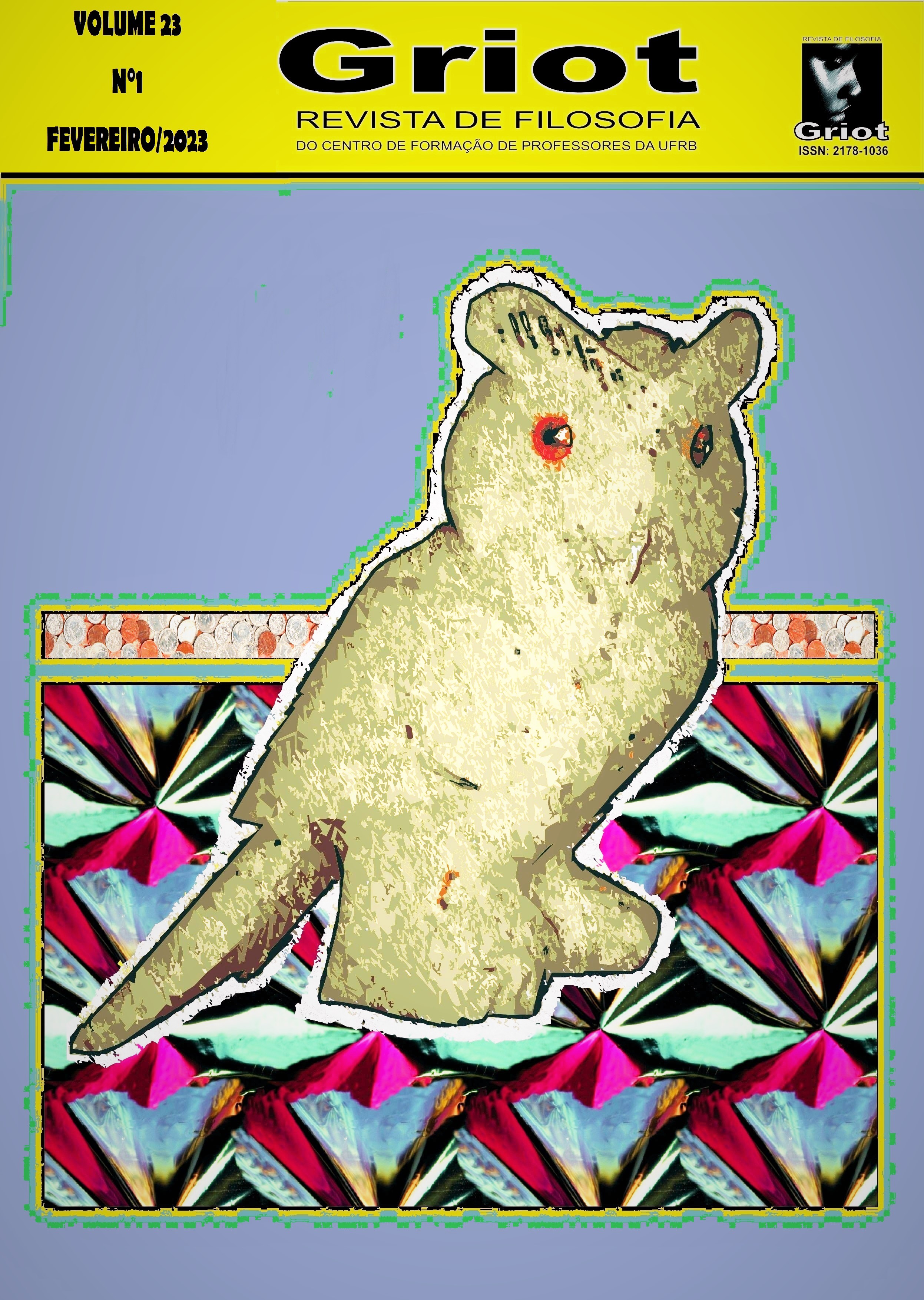The challenges of epistemic luck and a possible solution through the epistemology of virtues
DOI:
https://doi.org/10.31977/grirfi.v23i1.3119Keywords:
Epistemic Luck; Virtue Epistemology; Edmund Gettier; John Greco; Duncan Pritchard.Abstract
Knowledge and luck seem to be two antagonist concepts, that is, to grant knowledge to someone, such cognitive success should exclude luck from their process. However, since Edmund Gettier’s article “Is Justified True Belief Knowledge?” (1963), the spread of luck elements in knowledge acquisitions has been increasingly recognized until the point of generating skeptic conclusions in the epistemological field. The question, then, is how to resolve knowledge attribution together with factors of luck practically ubiquitous. So, I intend to cover two objectives: (i) I will show the extension in the debate of epistemic luck, that is, its ramifications, classifications, concepts and, some answers. After, (ii) I intend to argue about the advantages of approaching epistemic luck outside the field of propositions within the virtue epistemology focusing on other epistemics goods besides truth belief.
Downloads
References
BAERH, Jason. Four Varieties of Character-Based Virtue Epistemology. The Southern Journal of Philosophy, v.46, p.469-502, 2008.
CHENEY, Margaret. Tesla: man out of time. New York: Barnes & Nobles Books, 1981.
CHISHOLM, Roderick. Theory of Knowledge. 3a ed. New Jersey: Prentice-Hall International Editions, 1989.
CODE, Lorraine. Toward a ‘Responsabilist’ Epistemology. Philosophy and Phenomenological Research, v.45, n.1, p.29-50, 1984.
ENGEL, Mylan Jr. Epistemic Luck. Internet Encyclopedia of Philosophy. Disponível em: <https://iep.utm.edu/epi-luck/>. Acesso em: 20 ago. 2022.
FRENCH, Steven. Ciência: conceitos-chave em filosofia. Porto Alegre: Artmed, 2009.
GETTIER, Edmund. Is Justified Truth Belief Knowledge? Analysis, v.23, n.6, p.121-123, 1963.
GLANZBERG, Michael. Truth. Stanford Encyclopedia of Philosophy. Disponível em: <https://plato.stanford.edu/entries/truth/>. Acesso em: 25 set. 2020.
GRECO, John. Knowledge as Credit for True Belief. In: DEPAUL, Michael; ZAGZEBSKI, Linda. Intelectual Virtue: Perspectives from Ethics and Epistemology. Oxford: Oxford University Press, 2003. p.111-134.
GRECO, John. Achieving Knowledge: A Virtue-Theoretic Account of Epistemic Normativity. Cambridge: Cambridge University Press, 2010.
GRECO, John. A (different) Virtue Epistemology. Philosophy and Phenomenological Research, v.85, n.1, p.1-26, 2012.
ICHIKAWA, Jonathan Jenkins; STEUP, Matthias. The Analisys of Knowledge. Stanford Encyclopedia of Philosophy. Disponível em: <https://plato.stanford.edu/entries/knowledge-analysis/>. Acesso em: 09 nov. 2020.
NAGEL, Thomas. Moral Luck. In: STATMAN, Daniel. Moral Luck. Albany: State University of New York Press, 1993. p.57-71.
PLATÃO. Teeteto e Cratilo. Tradução de Carlos Alberto Nunes. Belém: Universidade Federal do Pará, 1988.
PRITCHARD, Duncan. Epistemic Luck. Clarendon Press: Oxford, 2005.
PRITCHARD, Duncan. What is this thing called Knowledge. London e New York: Routledge, 2006a.
PRITCHARD, Duncan. Moral and Epistemic Luck. Metaphilosophy, v.37, n.1, p.1-25, 2006b.
PRITCHARD, Duncan. Safety-based epistemology: whither now? Journal of Philosophical Research, v.6, p.33-45, 2009.
PRITCHARD, Duncan. Anti-luck virtue epistemology. Journal of Philosophy, v.109, n.3, p.247-279, 2012. Disponível em: < https://www.pure.ed.ac.uk/ws/portalfiles/portal/9347259/PRITCHARD_2012_Anti_luck_virtue_epistemology.pdf >. Acesso em: 12 nov. 2020.
PRITCHARD, Duncan. Knowledge, Luck, and Virtue: Resolving the Gettier Problem. In: BORGES, Rodrigo; ALMEIDA, Cláudio de; KLEIN, Peter D. Explaing Knowledge: New Essays on the Gettier Problem. United Kingdom: Oxford University Press, 2017. p.57-73.
PRITCHARD, Duncan. Modal Accounts of Luck. In: CHURCH, Ian M; HARTMAN, Robert J. The Routledge Handbook of the Philosophy and Psychology of Luck. New York e London: Routledge, 2019. p.115-124.
ROBERTS, Robert C.; WOOD, W. Jay. Intellectual Virtues: An Essay in Regulative Epistemology. New York: Oxford University Press, 2007.
RUSSELL, Bernard. Human Knowledge: its scope and limits. Routledge, 2009.
SCHWITZGEBEL, Eric. Belief. Stanford Encyclopedia of Philosophy. Disponível em: <https://plato.stanford.edu/entries/belief/>. Acesso em: 03 nov. 2019.
STATMAN, Daniel. Moral and Epistemic Luck. Ratio. v.4 n.2, p.146-156, 1991.
STATMAN, Daniel. The Definition of Luck and the Problem of Moral Luck. In: CHURCH, Ian M; HARTMAN, Robert J. The Routledge Handbook of the Philosophy and Psychology of Luck. New York e London: Routledge, 2019. p.195-205.
THE TRUMAN SHOW. Director: Peter Weir; Produção: Scott Rudin, et al. Produtora: Paramount Pictures; Scott Rudin Productions, 1998. 1 DVD (103 min), color.
TURRI, John; ALFANO, Mark; GRECO, John. Virtue Epistemology. Stanford Encyclopedia of Philosophy. Disponível em: <https://plato.stanford.edu/entries/epistemology-virtue/>. Acesso em: 14 out. 2020.
UNGER, Peter. An Analysis of Factual Knowledge. The Journal of Philosophy. v.65, n.6, p.157-170, 1968.
WILLIAMS, Bernard. Moral Luck. In: STATMAN, Daniel. Moral Luck. Albany: State University of New York Press, 1993. p.35-55.
ZAGZEBSKI, Linda. Virtues of Mind: An inquiry into the nature of virtue and the ethical foundations of knowledge. Cambridge: Cambridge University Press, 1996.
Downloads
Published
How to Cite
Issue
Section
License
Copyright (c) 2023 João Victor Rosauro

This work is licensed under a Creative Commons Attribution 4.0 International License.
The authors who publish in Griot: Revista de Filosofia maintain the copyright and grant the magazine the right of first publication, with the work simultaneously licensed under the Creative Commons Attribution 4.0 International License, allowing sharing and adaptation, even for commercial purposes, with due recognition of authorship and initial publication in this journal. Read more...









































































